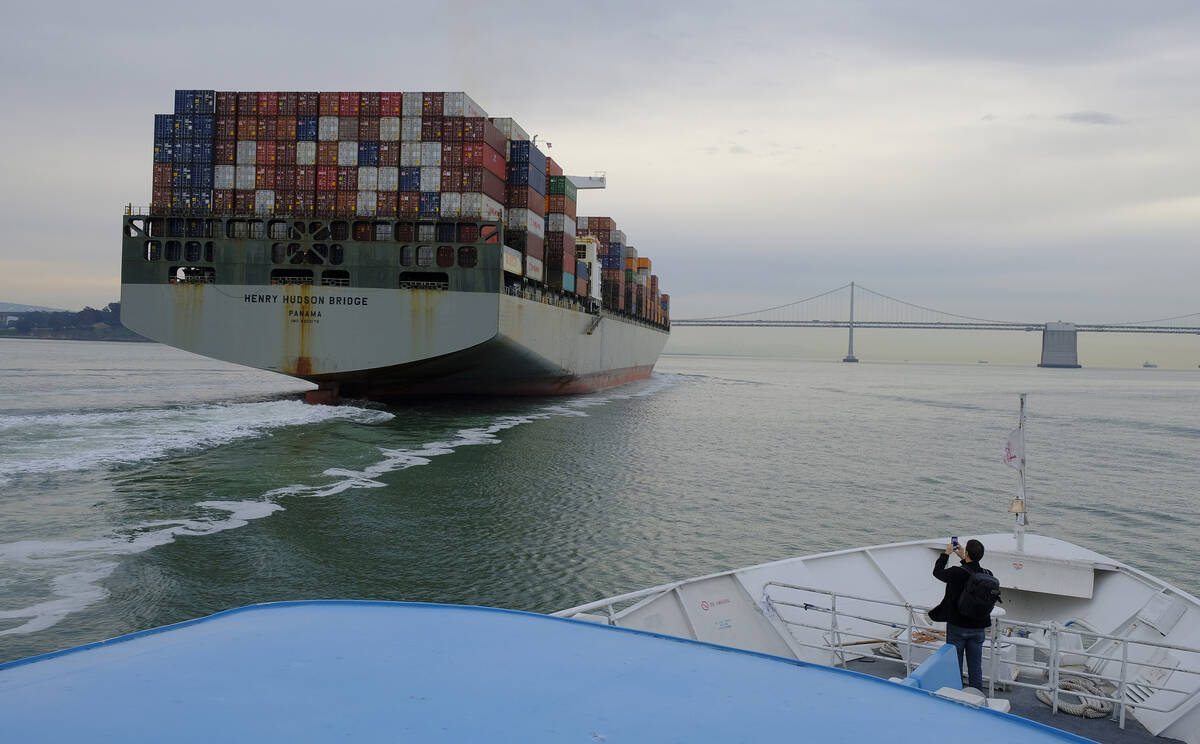COMMENTARY: Trump’s trade policies won’t make America great again
If former President Donald Trump wins the election in November, he has made it clear he will expand protectionist trade policies. He threatens to impose a 10 percent tariff on all imported goods and a 60 percent tariff on Chinese goods.
This policy will not make America great again. Quite the opposite. Prices of imported goods will increase, hurting consumers and businesses. Our trading partners will retaliate by decreasing exports. Uncertainty over economic policy will rise, slowing the economy and resulting in fewer manufacturing jobs. Trade wars are not “easy to win,” as the former president says.
Trump has said that tariffs were paid by foreign businesses. Recent research has shown that this has yet to be the case. Nearly all of the price increases from Trump’s tariffs were passed on to consumers or businesses purchasing the imported goods.
The higher price of imported goods also allows domestic producers to raise prices on goods that compete with these imports. There is no tariff-free lunch.
During the China trade war in Trump’s previous term, China raised its tariffs on goods imported from the United States. With Trump’s broad-based tariff increase, all of our trading partners will do the same thing. U.S. exports will take a big hit.
China imposed tariffs on items produced and exported from parts of the country where elections were close. Disproportionately, these were agricultural exports from the Midwest. Republicans lost seats in the House during the midterm elections in 2018. Research has found that Trump’s trade policies contributed to the decline in Republican support.
The administration responded to this by creating a farm aid package of $12 billion to offset the political damage of the trade policies. Trump’s trade policies might sound good at first, but less over time as the costs of these policies are realized.
Indeed, China doesn’t always play by the rules that a member of the World Trade Organization agrees to follow. Still, there are better ways of dealing with these violations. A multilateral approach involving China’s major trading partners would have applied far more pressure on China to reform and follow the rules.
The World Trade Organization has a process designed to resolve these disputes. The facts of the case are examined, and a ruling is made on whether the country — in this case, China — has violated the agreed-upon trade rules of the organization. If they have violated the rules, they are given a period to make changes. If they don’t change their behavior, the countries that lodged the complaint can impose restrictions on Chinese sales in their countries.
This carries far more weight and pressure than Trump’s unilateral approach, given the multi-country nature of the process. China is far more likely to comply under these circumstances. In the past, it has generally made the necessary adjustments in these situations.
Trump’s trade policies will create a high level of economic policy uncertainty that will damage the economy. When faced with a rise in uncertainty, foreign and domestic businesses will pull back on expansion. Domestic investment, foreign investment into the United States, and general international commerce will contract. Considerable research supports this claim. The result is slower economic growth. It could contribute to a global recession.
More than half of imported goods are intermediate items or inputs used in manufacturing. Because the cost of these inputs will rise with the tariffs, total employment in manufacturing and the entire economy will decline or, at best, grow slower.
Yes, there is an expansion in employment in the import-competing industries that receive protection. However, the costs of producing goods and services by all other domestic businesses are higher, reducing employment. More jobs are lost in the economy than saved in the protected industries.
Economists estimate the cost of higher prices per job saved often exceeds $500,000. This is highly regressive and inflicts more significant harm on families with low or moderate incomes. These families purchase more imported items or goods produced with imported inputs. These tariffs will be paid for on the backs of families of modest incomes.
Trump’s trade policies and proposed new tariffs are poor. They will harm the economy. They will not make America great again.
A second term for Trump will be a mistake for the country and working Americans.
Robert Krol is a professor of economics emeritus at California State University, Northridge. He wrote this for InsideSources.com.






















